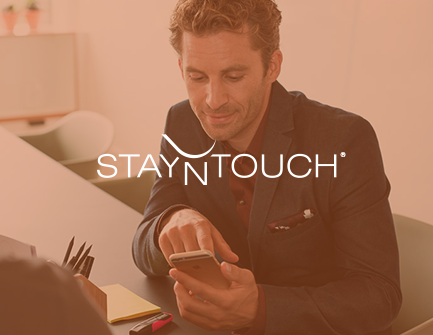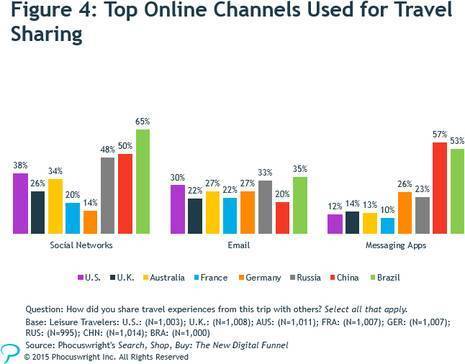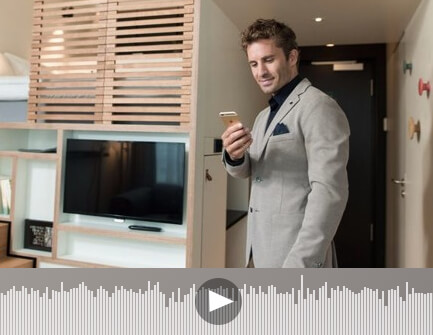The “Connected Guest” – What Do They Really Want?
Guests are embracing new technologies and apps on a daily basis, and hotel companies are trying their best to also get into the fray by developing their own guest facing applications to drive loyalty.
All of this comes during the most fascinating time for the hotel industry as it grapples with the disruption from alternative lodging companies such as Airbnb and HomeAway. To say that all of these dynamics combined to make it difficult for a hotelier to connect and build relationships with their guests would be a major understatement.
In the U.S Consumer Travel Report presented in July 2016 by Phocuswright™, research shows that 82% of leisure travelers are within the older millennial travel bracket (25-34). Their main differentiators are; their desire to stay connected through the entire travel journey, to like to travel alone, they are motived to see the world, they enjoy air travel and like to rent private accommodations.
So what exactly does today’s connected guest really want?
It would be fair to say that some guests are still very old school and want a high-touch in person relationship model that most hoteliers pride themselves on delivering. On the other hand, many guests (at least at some point) just want a bed, services, restaurant and a bar in a location or setting that helps them either experience a great vacation or an optimized business trip.
According to the Phocuswright 2016 Technology Trends report, messaging is a game-changing trend for the travel industry. If you look at the adoption of messaging apps, this indeed should be an area for hotels to keep their eye on. There are now many guests that are open to and even prefer communication via messaging apps. They want to be notified when their room is ready so that they can check in. They want to be informed about daily specials via an SMS message. In fact, 49% of travelers would be persuaded to make a purchase of relevant offers from mobile push notifications (Frost & Sullivan/Amadeus). They also want to the option to communicate back to the hotel about any changes in their plans or to report an issue. It appears by all accounts that messaging is definitely here to stay.
The connected guest also wants to feel as if they are unique and not just another traveler being given a key to yet another room that looks and feels like the last room the occupied. Personalization helps hoteliers reach specific guests, but this is all contingent on the gathering of specific data. Big data has been a “buzz word” for quite some time. The mining of this data to help with decision-making and also the delivery of personalized service is a panacea. I believe that gathering great data on the property is the best way to ensure that guests are delivered the ultimate engagement model based on their on-property preferences. The only way to gather this information is by talking with them and recording their likes, dislikes and optimally, what they are passionate about.
As technology continues to permeate our lives, it only makes sense that we start replacing the outdated, antiquated technologies within the hotel industry for innovative platforms that enable hotel employees to truly connect with guests at every touch point. This way, employees can create a unique interaction and input relative data within the guest profiles that most hotels cannot get online or using other channels.
The best way for this type of engagement model to occur is to empower hotel employees with readily available technologies to perform their daily tasks and routines. One example is using a cloud and tablet based property management system (PMS) for employees to check-in guests and to truly connect with the guest by meeting them face to face without the front desk as being a human barrier. Also, by empowering housekeepers, using identical tablets, to also engage the guest more than by just saying hello will help in gathering information that can be input as another layer of data thus ultimately refining the personalized service that the guest wants. The power of a human connection should never be dismissed and by delivering technologies that enable relationships to be fostered should be a top priority.
The connected guest also wants to feel as if they are an insider. When traveling, they want to understand what the area/region has to offer. They do not want a brochure to help them make a decision on where to dine or what to do. They want to hear about authentic experiences from others and make their decision accordingly.
Finally, today’s hotel guests want to share their experiences. We are all about sharing these days. In a 2015 study developed by Phocuswright titled “How (and Way) Mobile Messaging Will Transform Traveler Engagement” there are multiple platforms that travelers use to tell their stories (Figure 4). Messaging and social networks are the most prominent and hotel companies enabling the use of these platforms will ultimately drive engagement with the connected guest.
The one constant is change. Our guests are changing, their requirements are changing, technological innovation is driving change and globalization is ensuring that we must change. The hotel industry is under a great deal of pressure, but if hoteliers listen to their guests, deliver what their guests want and need and go beyond in developing relationships with their guests, they will be able to flourish during complex times.
Source: hospitalitynet.org










